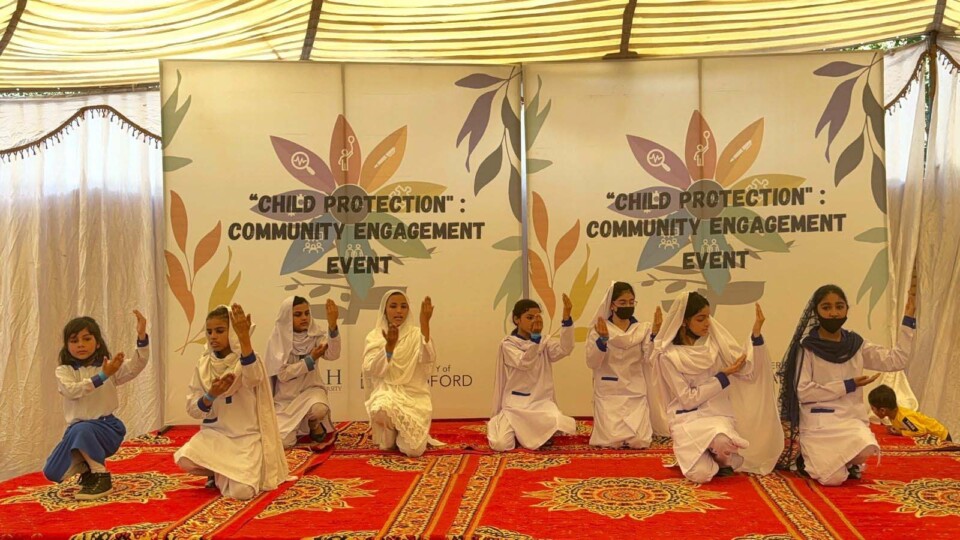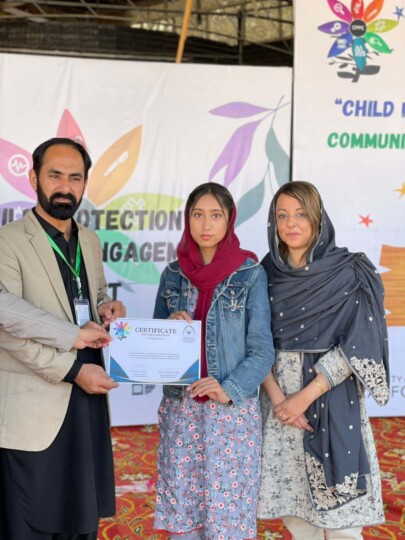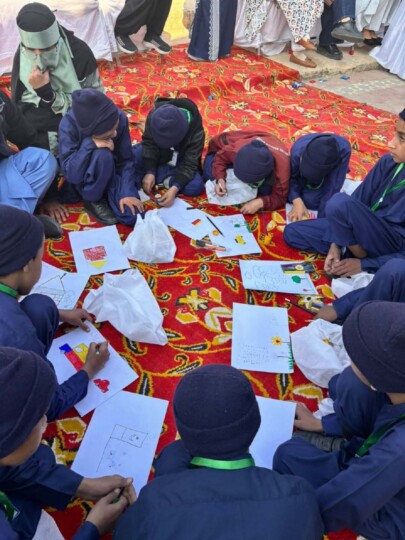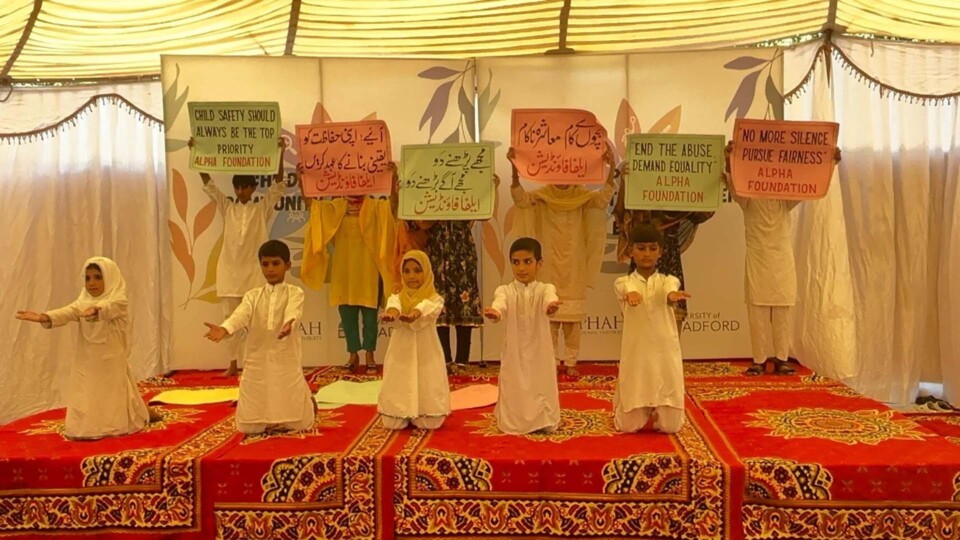Bradford academic helping to empower children in Pakistan
A University of Bradford academic has led community engagement events to empower youngsters in Pakistan as part of her study into child sexual abuse (CSA) in the country.
Dr Samina Karim, Associate Professor, Social Work at the University, organised inclusive community engagement events in the three districts of Pakistan with the highest rates of reporting CSA, where children’s empowerment was the key focus.
She said: “Children were empowered through performances and public participation, that encouraged them to express their thoughts about their rights and protection and contribute to advocacy efforts for change within their communities.
“By fostering open dialogue and raising awareness, the events aimed to strengthen community-based responses to CSA and promote a culture of protection and support for vulnerable children.
“Our research-driven community engagement initiative has successfully translated academic findings into meaningful real-world impact, directly addressing the challenge of CSA in Pakistan.
“Our research is showing us, that empowering children is one of the ways in which we can address child maltreatment, transforming them from passive subjects to empowered participants in their protection.”

Children took part in group exercises and performances to express themselves freely. Images credit: Dr Samina Karim
How the events worked
The events, in Islamabad, Rawalpindi and Kasur, were held in open and public spaces, making them inclusive and transparent forums to encourage active participation.
They follow Dr Karim’s team’s initial research, based on more than 110 interviews with victims/survivors of child sexual abuse, which found how power imbalances in society create environments where children are vulnerable.
The events gave children a platform to express themselves through a series of individual and group performances including drama, poetry and martial arts. They also took part in arts expression activities, including painting.
More than 1,500 people attended, including children, parents, teachers, school leaders, social activists, local non-government organisations, district child protection officials, and University student volunteers. Professionals and the wider community who attended the events, held in October 2024 and January 2025, pledged to advance child protection in these districts.
Hosting the events in public spaces promoted safety through visibility, and the inclusive format helped to build trust between participants.
Following this initial success, further engagement events are scheduled for the 2026-27 academic year, to bring research to communities.

Dr Samina Karim, right, has led community engagement events. Images credit: Dr Samina Karim
Who is Dr Karim?
Dr Samina Karim is a former social work practitioner turned academic, specialising in the field of child protection. Dr Karim holds a PhD on Power and the institutional abuse of children, as well as having experience of research to inform practice and policy relating to safeguarding vulnerable individuals.
In 2022, she was awarded a UK Research and Innovation (UKRI) Future Leaders Fellowship to conduct a four-year study into child sex abuse.
She received around £1 million in funding and in-kind contributions to undertake innovative research on the abuse of children from Pakistani backgrounds, both within the UK and in Pakistan. Dr Karim is also a Senior Fellow of the Higher Education Academy.

Arts expression activities were held at the events in the three Pakistan districts. Images credit: Dr Samina Karim
Different is what we do
UNEQUAL – We’re calling out inequality and making changes
Research on child sexual abuse in Pakistan is one of the ways the University of Bradford works to help people achieve the unachievable.
We’re making sure those most affected by climate change have their voices heard and cutting deaths and serious illness in pregnant migrant women.
Other ways we help to call out inequality includes through Brad-Attain, our commitment to addressing systemic inequality experienced by our staff and students. Find out more on our website

